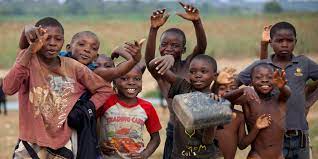With all the challenges that the working class faces, there is an underlying big issue that is hardly spoken about and that is the survival of the kids in working class communities. It would be difficult to pick up the struggle because they are linked to big issues.
Children in working class communities are deprived of the enjoyment of enjoying their childhood. In most households, the children must fill in and be the parent, in many cases, because of the working schedule of the parents. These are the living conditions or the situation at home. As soon as children tap into the mindset of being a parent, they switch to survival mode and that becomes the main focus. This is part of what enables problems such as teenage pregnancy, the cycle of poverty, the high rate of unemployment and the high rate of school dropouts.
In a lot of cases, these children don’t finish school because of the responsibility that they have to carry. They are also at a high risk of being pregnant while still teenagers. Without education, for many among them there is no other form of survival besides sex work, which fact contributes to the high rate of teenage pregnancy. This is a sign that someone, either in society in general or at home, is not doing what they are supposed to do.
It is either that parents are not providing well enough, or society lacks role models, or there are not enough organisations that educate children in working class communities on how to tackle such situations. Another possible reason is that the government may just not be intervening and providing jobs that could prevent most of these problems.
Lastly, a known fact is that there is a lack of facilities in working class communities. Children don’t anything to do during their free time standing in corners leading to bad habits such as smoking, drinking and even substance abuse. In my perspective, this is a cycle of poverty that anchors other problems making it challenging to completely erase these other problems or decrease them.
This article is an opinion piece submitted on 24 February 2023. The views expressed by the author do not necessarily reflect those of Karibu! Online or Khanya College. You may republish this article, so long as you credit the authors and Karibu! Online (www.Karibu.org.za), and do not change the text. Please include a link back to the original article.


 Download PDF
Download PDF